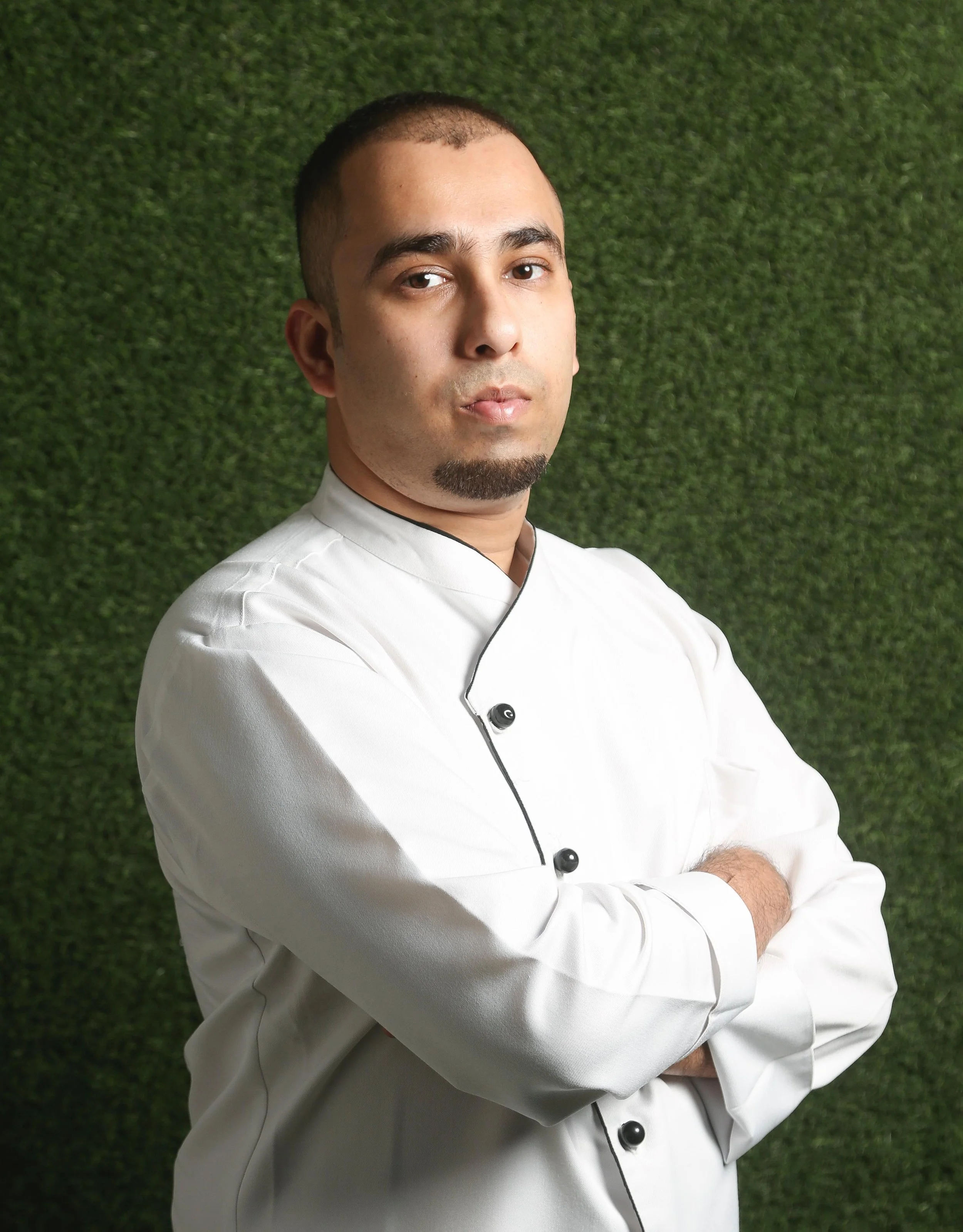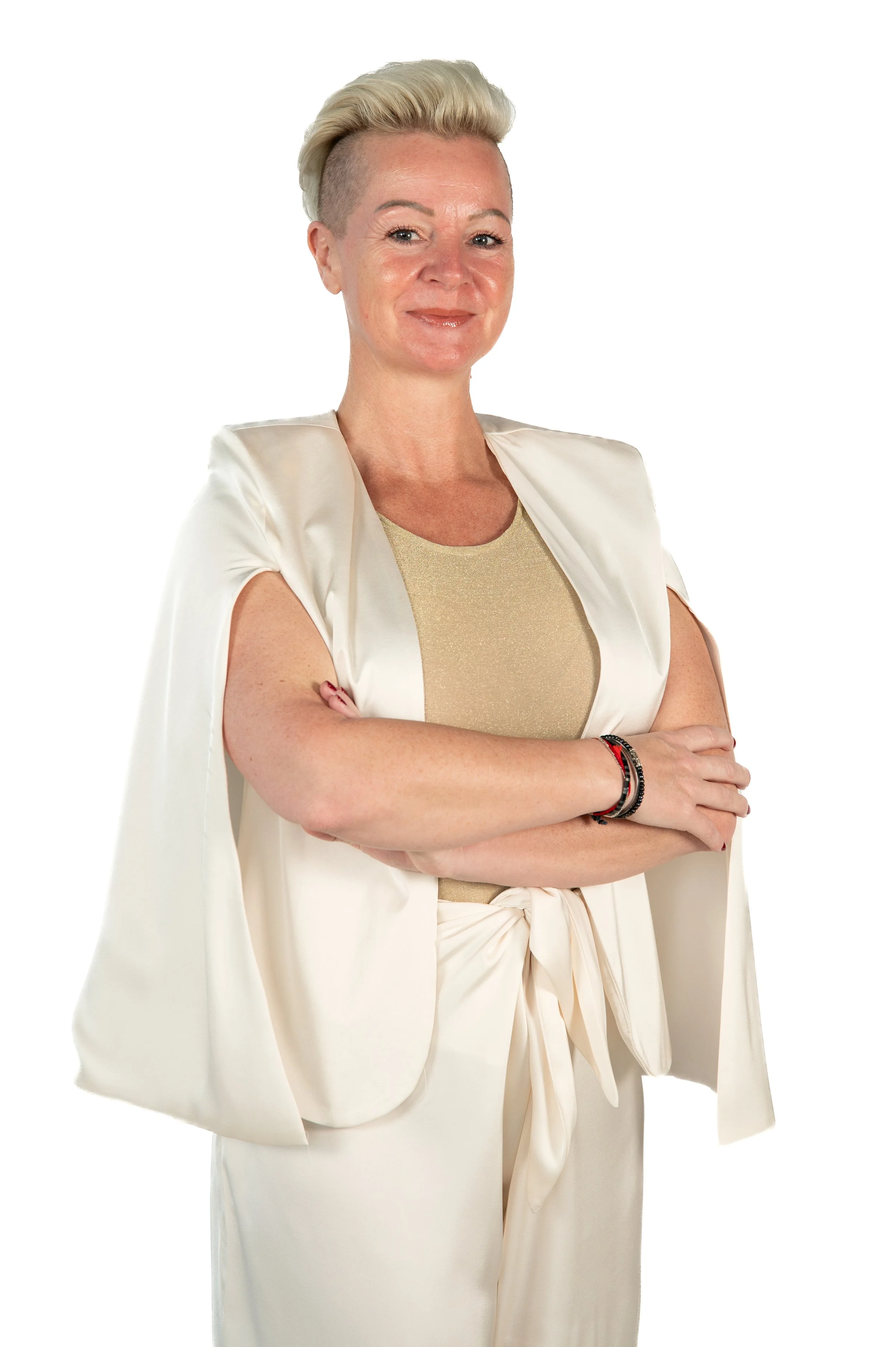Exclusive Interview | Chef Rishab Gupta, Co-founder, Burash
/Can you share a bit about your journey and what inspired you to pursue a career in culinary arts?
I come from a business-oriented family, and like many others raised in such an environment, I assumed I would pursue a BBA and join my father's company. After completing school, I enrolled in a BBA program at Amity University. However, my passion for cooking and the late- night cravings of a young adult led me to launch a small home-based kitchen named 'Night Foodies' in 2013. Working through the nights making burgers and pizzas, I discovered a deeper truth: food was my true calling. This realization inspired me to enroll in an advanced culinary diploma course at IICA, Delhi.
What drew you specifically to Mediterranean cuisine, and how do you integrate its principles into the menu at BURASH?
While Mediterranean cuisine is now my area of expertise, it wasn't always that way when I first entered the culinary world. Back then, I was simply enthralled by food itself - the ingredients, the professional equipment, the entire culinary landscape. This excitement drove me to work in every section of the kitchen, absorbing the fundamentals of various cuisines. During this exploration, I encountered the basics of Mediterranean cooking. Coupled with reading the influential book 'Salt, Fat, Acid, Heat,' I discovered a deep love for this cuisine. Mediterranean cuisine is characterized by an abundance of hearty vegetables, fruits, meats, and healthy fats. This philosophy is the foundation of Burash. Just as the countries bordering the Mediterranean Sea avoid artificial ingredients, so too do we at Burash. Our menu is meticulously crafted to showcase fresh, seasonal produce available locally, ensuring the authenticity of our Mediterranean dishes.
As a graduate of the International Institute of Culinary Arts (IICA) in New Delhi, how has your education influenced your approach to cooking?
Yes, education definitely changed my approach to cooking. There is this misconception that doing hotel management or a culinary diploma will teach you how too cook which is not the case. The never ending journey of learning cooking starts way after college on ground but that is where IICA played an important role in my life.
IICA makes sure to inculcate the discipline required in any chef and also aligns your thinking with the industry, teaching you the importance of ingredients and reading and learning . So yes it was IICA that guided me to take a more professional approach to pursuing my passion of cooking and gave the perfect kickstart to my journey.
Can you describe the process of foraging and selecting the seasonal ingredients used in your dishes?
Unlike traditional menus overflowing with countless options, Burash offers a concise selection that captures the heart of Mediterranean cuisine. We've curated a menu featuring popular dishes from various countries bordering the Mediterranean Sea. For instance, we have the French specialty, Boeuf à la Mode – a braised lamb shank dish.
Italy is well-represented with classic pastas and pizzas like the Tala Romano. This thin-crust pizza is prepared in the time-honored tradition, using a wood-fired oven and fresh dough rolled out by hand. We source top-quality San Marzano tomatoes and cook them with care, ensuring an authentic experience. To further emphasize authenticity, we refrain from using oregano and chili flakes at Burash.
Even our shawarma selections, while occasionally featuring an interesting twist, never stray from the core principles of Mediterranean cuisine. This translates to a focus on fresh ingredients, with no artificial substitutes used whatsoever. This philosophy is the driving force behind the menu design at Burash.
What are some signature dishes at BURASH that you believe best represent the essence of Mediterranean cuisine?
Two signature dishes are also burash, which are The Burash which is named after the restaurant. Also, it's they’re basically canopies served in a French way, Parmesan cheese, cracker, fig, tepenard, mascarpone cheese on top. So it's a flavor bomb. Then there's the Luristem and yam kubi there, which is a Persian dish. Actually, it's something similar to galotti kebabs that we see here.But kubi there is a Persian dish which is pretty popular.
How do you balance traditional Mediterranean flavors with contemporary culinary techniques in your kitchen?
Burash's approach to hummus is unique compared to many other restaurants. In the Middle East, hummus can sometimes be quite simple, featuring a strong tahini (sesame paste) flavor.
Traditionally, it's often served with pickles and pickled chickpeas on top. At Burash, we embrace this traditional method of preparing hummus. However, we take it a step further by pairing it with a more familiar accompaniment for our Indian clientele: kulcha, a type of clay oven-baked bread. This substitution stays true to the spirit of Mediterranean cuisine, where flatbreads are a staple accompaniment to hummus.
Similarly, we offer a twist on lavash, a Middle Eastern flatbread. Unlike the crispy lavash commonly found elsewhere, ours resembles a roomali roti, a soft flatbread popular in India. This allows our customers to enjoy the familiar texture they might prefer while still experiencing the essence of Mediterranean cuisine.
Can you discuss the health benefits associated with Mediterranean cuisine and how you incorporate these into your menu planning?
While achieving perfect health through restaurant dining might be unrealistic, Burash prioritizes offering healthy choices. We understand that healthy eating goes beyond just a single meal. It's about managing calorie intake, protein intake, and overall macronutrient balance.
Burash's Healthy Focus:
Salads: We offer vegetable, berry, and nut-filled salads with a light yogurt dressing served on the side. This allows you to control dressing quantity and maintain freshness.
Smart Fats: Our granola boasts a balanced omega-6 to omega-3 ratio. We also use lean meats, minimizing processed options and fatty cuts.
Measured Portions: Dishes like the Turkish Tavuk feature precisely portioned chicken breasts (120g) roasted for maximum protein and minimal fat. Fresh, High-Quality Ingredients: Burash prioritizes ethically sourced, high-quality ingredients. Real extra virgin olive oil offers health benefits compared to adulterated options.
Balanced Cooking Techniques: We favor roasting over frying and minimize added oils and spices to retain the natural flavors of ingredients.
In essence, Burash provides healthy options within the Mediterranean diet framework. We use fresh vegetables, legumes, healthy fats like olive oil, and maintain control over ingredients and cooking methods.
What challenges do you face in sourcing authentic Mediterranean ingredients in Noida, and how do you overcome them?
I think the sourcing of good Mediterranean ingredients is a constant problem. It's not just about Noida, it's about anywhere. when you’re dealing with quantities, supplies turn out to be a problem. Maybe sometimes what happens is like right now we are living in summers. So by the time the lettuce, which comes from Azadpur Mandi, which is about 50 kilometers away from here, come here, they tend to die in the heat. So that material is rejected. Some things like Parmesan cheese and everything is imported. So sometimes the vendor, the supply, the container doesn’t read the vendor because of which it doesn’t reach us. Other times, things like there's a global cocoa crisis at the moment, so there's a dearth of chocolate in the entire world right now.
So that is also becoming a problem. Suddenly that finding good Belgian chocolate is becoming a very big problem. The problems are always there. How I overcome it? some might think that being a restauranteur and everything, life is that you just walk in. The moment you walk in, there are people serving you food and everything and it's luxurious while it's not. I think every morning the first calls I have is from my purchase manager where he's saying that the supply hasn’t reached and that hasn’t reached. And the next two hours I think I spend on either calls or roaming here and there to arrange those ingredients. So I think how do you arrange it, I don’t know, just taking your car and just going outside and since in all these years I know different alternate parts where you can get supply from. So you just end up over there and quickly arrange the supply.
How do you ensure that your dishes remain both nutritionally balanced and flavorful?
Many believe nutritious food lacks flavor, but I disagree. Fresh vegetables, for example, are naturally delicious when sauteed simply. This philosophy guides my approach at Burash: letting the ingredients shine.We avoid over-complicating recipes with unnecessary ingredients. Instead, we focus on enhancing the inherent flavors of our dishes. A prime example is the Turkish Tavuk.
This dish features chicken marinated in yogurt and fragrant spices, then roasted to perfection in a clay oven. The perfectly cooked chicken delivers a satisfying flavor on its own. We pair it with a refreshing citrus salad and peppery rocket leaves, adding a touch of juicy brightness without overpowering the natural flavors. Proper sourcing and handling are crucial. Perfectly ripe oranges and fresh rocket leaves, simply tossed with salt and pepper, create a symphony of taste.
This philosophy extends to most of our menu, excluding pastas and pizzas which have a different flavor profile. We believe in highlighting the natural potential of ingredients through smart pairings. The result? Dishes that are not only nutritious but also well-balanced in flavor. This is the essence of what we strive to achieve at Burash.
What future trends do you see emerging in Mediterranean cuisine, and how do you plan to incorporate them at BURASH?
So I believe there are two kinds of things. One one are trends that come in, trends that get famous. Example that London viral chocolate and strawberry mix has again gotten pretty trendy over here. So everyone is trying to do that.





